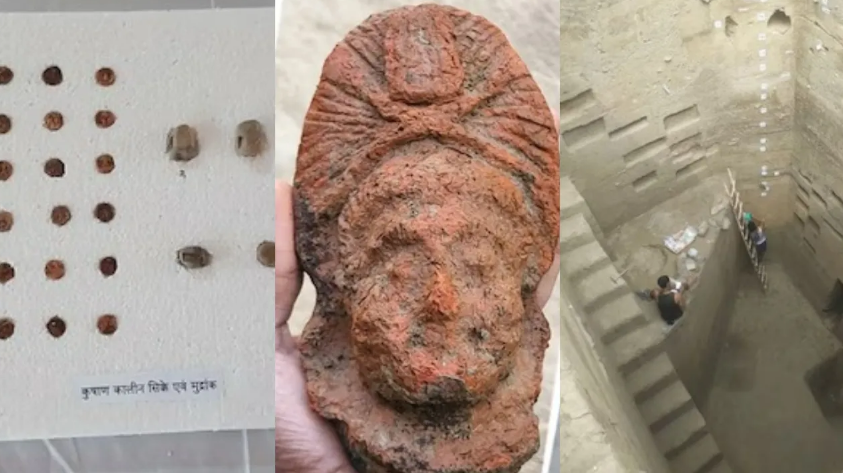Rajasthan: The Archaeological Survey of India (ASI) has discovered evidence of a 4,500-year-old civilization during ongoing excavations in Bhaj village of Deeg district, Rajasthan. The findings include significant artifacts dating back to the Maurya and Shunga dynasties. ASI officials confirmed that over 800 ancient objects have been recovered, including ritual tools, weapons, and pottery.
Launched in January this year, the excavation also led archaeologists to a 23-metre-deep paleo-channel—an ancient riverbed believed to have played a key role in the habitation of Harappan, Braj, and Mathura civilizations. Among the discoveries are terracotta idols, coins made from copper-iron alloys, seals, yajna kunds, and a human skull fragment, which has been sent to Israel for further analysis.
Archaeologists have identified evidence pointing to five major historical phases at the site: post-Harappan, Mahabharata period, Mauryan era, Kushan dynasty, and Gupta age. Notably, the discovery of Shiva-Parvati terracotta idols signifies the prevalence of devotional traditions, while 15 yajna kunds are linked to Vedic and post-Vedic rituals. Items such as bone-made needles, moulds, and buttons—found for the first time in Indian excavations—highlight the advanced craftsmanship of the time.






